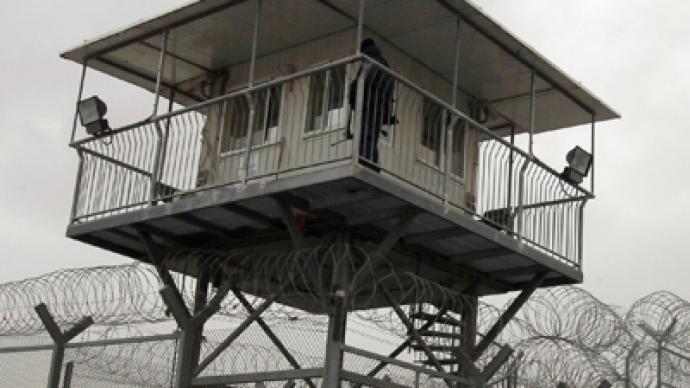Israel confirms Prisoner X's suicide in secret custody amid censorship claims

Israeli media and officials are outraged over a government order forcing censorship of coverage of claims that an Australian-Israeli Mossad agent was secretly detained for months until he committed suicide in 2010. Israel confirmed the allegations.
The Australian Broadcasting Corporation (ABC) shed new light on the top-secret case about a man previously known only as ‘Prisoner X.’ It was reported that the man was 34-year old Australian-born Ben Zygier from Melbourne, who was recruited by Israel’s secret service Mossad. After ABC’s broke the news, the Israeli Prime Minister's Office summoned the Editors Committee, consisting of all of the editors and owners of major Israeli media outlets, for an emergency meeting with security officials to ask them not to report on the story – effective implementing a nationwide publishing ban. The ban was justified over fears that publishing further details on the case would be “very embarrassing to a certain government agency,” Israeli newspaper Haaretz reported. After the meeting, the mention of ABC’s report disappeared from all Israeli news media. Israel's Justice Ministry confirmed that 'Prisoner X,' which it still has not named, killed himself in custody in 2010.The ministry maintained that 'Prisoner X' was held in compliance with a court order, and that his family had been notified. Strict censorship is unusual for Israel, a Reuters report explained – typically, when the media is censored for security reasons, Israeli outlets are still allowed to cite news from foreign sources.The details of the meeting were kept secret, prompting Israeli lawmakers to demand the release of information on it. The editors’ decision not to publish anything about ‘Prisoner X’ has led many in Israel to speak out against the media’s cooperation with the government’s ban.No clear response followed: "I cannot answer these questions because the matter does not fall under the authority of the Justice Minister," Haaretz quoted Justice Minister Yaakov Ne'eman as saying. "But there is no doubt that if true, the matter must be looked into."
"The phenomenon of journalists volunteering to censor information at the authorities' request is patently undemocratic. I had hoped that it had been abandoned dozens of years ago," Zahava Gal-On, a Member of the Knesset – Israel’s legislative branch – and the Zionist social-democratic party Meretz told Haaretz.Israeli lawmakers are calling for the prime minister and public security minister to appear before the Knesset's Foreign Affairs and Defense Committees to clarify the matter. "It is unthinkable that information passed on to the Editors Committee in order to conceal it from the public will be kept from Knesset [Israeli legislative branch] members," Gal-On said.Nitzan Horowitz, a member of the Zionist social-democratic political party Meretz, told the Knesset – Israel’s legislative branch – that he contacted the Attorney-General when reports of the secret prisoner first emerged. Horowitz said he argued that the detainment was illegal, but was assured of its propriety and legality."Does this not indicate a basic failure in the law enforcement system? Sweeping everything into a deep and even draconian secrecy, has no place in democratic regimes," the Jerusalem Post quoted Horowitz as saying.Several Israeli media outlets have also spoken out against the censorship. Editor-in-chief of Haaretz Newspaper Aluf Benn wrote an editorial criticizing the ban, and arguing that it has no real power to suppress information in the age of the Internet and social services. “Israel's censorship laws shine a spotlight instead of hushing up the blunder. Government censorship in modern times – be it in Israel, Syria or Iran,” Benn wrote. Censorship “becomes a pathetic attempt to turn back the clock to a time before WikiLeaks, Facebook and Twitter, and before bloggers who don't give two hoots about the censor,” he said.Benn argued that despite the fact that security officials continue to live in the past century “when information is kept in regimes' safes,” behind “highly fortified walls,” there is now “an entire world without restrictions and without constraints, in which people are free to exchange information, opinions and even photographs.”After fierce public outcry, domestic media outlets were granted permission to quote foreign reports about Zygier, but not to publish any original material, Israel Radio reported.It is the second time Israel has tried to ban reporting related to ‘Prisoner X.’ The first ban was implemented in March 2010, after Israeli website Ynet first reported on a mysterious prisoner being held in compete secrecy in one of Israel’s prisons. The article was quickly taken off the site because of a publishing ban, which prohibited all Israeli media outlets from writing about the man who had been referred to as “Prisoner X,”"Mr X" and "Cell 15 in Ayalon prison."
Covert affairs: Operation incognito
ABC revealed that Zygier came from a Jewish family, and decided to move to Israel 10 years ago. After moving, he changed his name to Ben Alon and married an Israeli woman, with whom he had two children. Zygier also reportedly had a fake Australian passport under the name of Ben Allen. Mossad later said it recruited Zygier – his work for the organization could be behind his arrest in early 2010, but no specific details are available. He reportedly spent several months at Ayalon jail in the central Israeli city of Ramla, before being found dead in his cell after allegedly hanging himself in December 2010.Zygier's detention was so secret that even his guards did not know his real name, ABC reported. After his death, his body was flown back to Australia for the funeral. Contrary to his earlier claims, Australian Foreign Minister Bob Carr revealed that his department and intelligence service were made aware in 2010 that an Australian man was taken into custody.“The Australian government was informed in February 2010 through intelligence channels that the Israeli authorities had detained a dual Australian-Israeli citizen, and they provided the name of the citizen, in relation to serious offences under Israeli national security legislation,” Carr told the Senate hearing on Thursday.Foreign Minister has also ordered an investigation into the actions of Australian authorities handling the 2010 consular case, as Israeli authorities reportedly told an Australian diplomat in Tel Aviv about Zygier's arrest, but that information was never passed on through proper channels.At the same time, Carr said that Zygier's family had made “no requests for consular assistance during the period it's alleged he was in prison,” which restricted the government’s ability to offer assistance, since no official complaint had been filed.Australian opposition foreign affairs spokesperson Julie Bishop sought answers in a meeting with Israel’s ambassador to Australia on Wednesday. "If there are security considerations I can understand it, but if it's just about embarrassing a government agency, then that certainly requires an explanation and I'll be seeking one," Bishop told ABC.For the first time since the news broke, a member of Zygier's family spoke out Wednesday morning, revealing how difficult and confusing the situation has been: “I have no idea what is true, what isn't true,” Zygier's uncle Willy Zygier told ABC. “All I know is there's a family tragedy. Every suicide is a tragedy. That's all I've got to say.”















